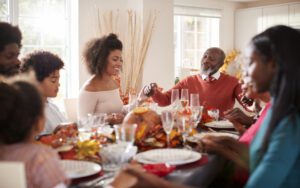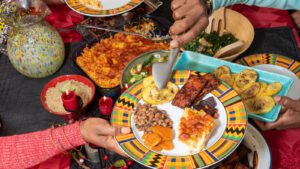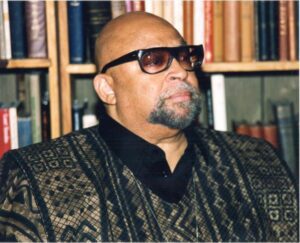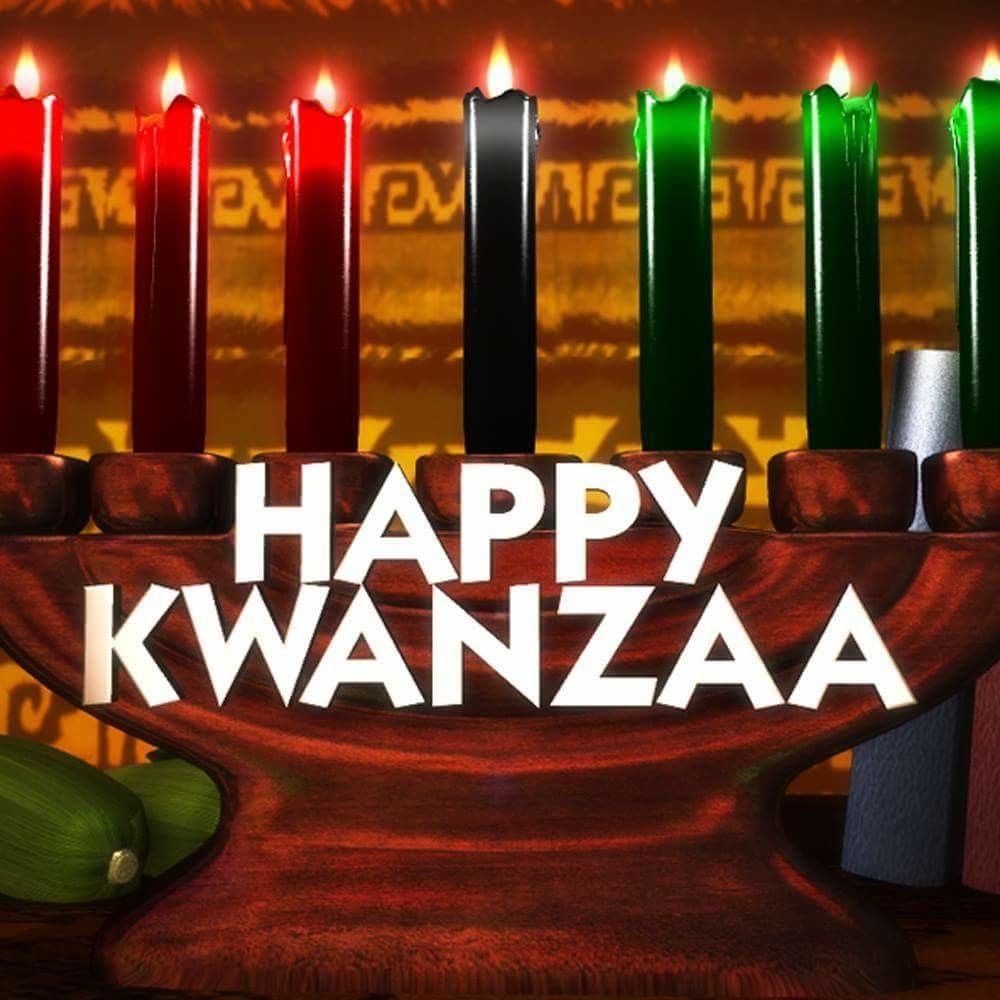
Kwanzaa is an annual celebration of African-American culture from December 26 to January 1st. It is a seven-day, non-religious celebration of family, culture, and community. Each day honors a particular African-derived principle, and the celebration ends in a communal feast called Karamu, on New Year’s Day.
What does “Kwanzaa” mean?
Kwanzaa derives its name from the Swahili phrase “matunda ya kwanza”, meaning “first fruits”. It is important to remember that the holiday is meant to symbolize hope and pride, not to replicate an existing holiday. Instead, Kwanzaa borrows from existing traditions to make something altogether new.
How did Kwanzaa come to be?
It was created by activist Maulana Karenga, based on African harvest festival traditions from various parts of West and Southeast Africa. After studying different beliefs and practices from Africa’s 54 countries, Karenga invented a week-long commemoration that blended educative and spiritual elements he thought would be most useful to people of African descent living outside of the continent.
Borrowing from Hannukah, among other mainstream religious holidays, Karenga envisioned a harvest festival that closed the year with gratitude before ushering in hope for a brighter future. Kwanzaa was first celebrated in 1966, and is based on seven principles.
The Seven Principles
The holiday is defined by Nguzo Saba, or the seven principles. Each day of the festival is dedicated to a specific principle, marked by lighting a new candle on the kinara, a seven-branched candelabra.
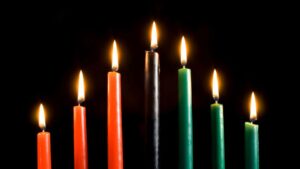
Umoja – December 26th
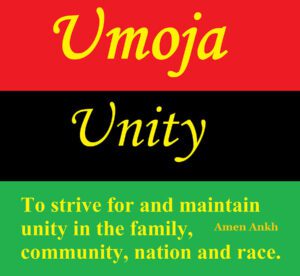
Umoja means unity in Swahili. Karenga defines this as: “To strive for and maintain unity in the family, community, nation and race.”
On the first day, the center black candle (Unity candle) is lit. The Unity Candle is lit each first each day.
Kujichagulia – December 27th
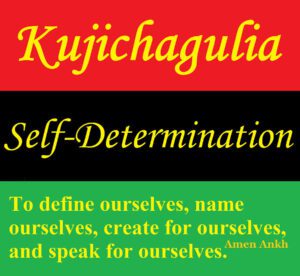
Self-determination. This principle refers to defining, naming, creating and speaking for oneself. It encourages individuals to shape their own destinies.
On the second day, the Unity Candle is lit, then the red candle closest to it.
Ujima – December 28th
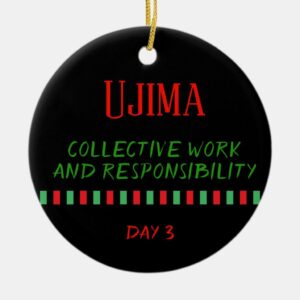
Collective work and responsibility. Karenga writes this is “to build and maintain our community together and make our brother’s and sister’s problems our problems and solve them together.”
On the third day, the Unity Candle is lit; then the red candle lit the day before; then the green candle closest to the black Unity Candle is lit.
Ujamaa – December 29th
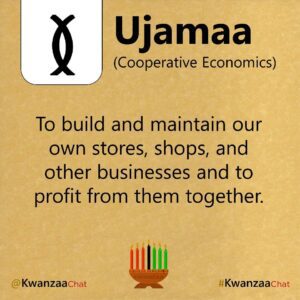
Cooperative economics. Similar to ujima, this principle refers to uplifting your community economically. “To build and maintain our own stores, shops and other businesses and to profit from them together,” writes Karenga. unity in Swahili.
On the fourth day, light the Unity Candle and the two red and green candles previously lit, in order; then light the middle red candle.
Nia – December 30th
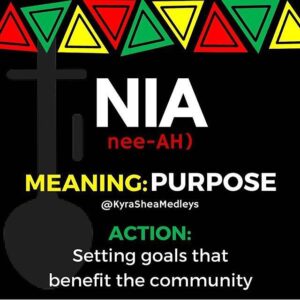
Nia means purpose. Karenga expands on this principle with “To make our collective vocation the building and developing of our community in order to restore our people to their traditional greatness.”
On the fifth day, light the Unity Candle and each of the candles lit the previous days, in order; then light the middle green candle.
Kuumba – December 31st
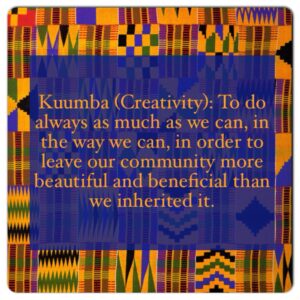
Creativity. Karenga defines this principle as “To do always as much as we can, in the way we can, in order to leave our community more beautiful and beneficial than we inherited it.”
On the sixth day, light the Unity Candle and each of the candles lit the previous days, in order; then light the remaining red candle on the end.
Imani – January 1st
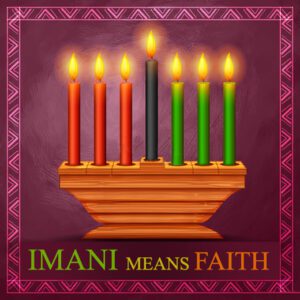
The final principle translates to “faith”. Karenga defines this as faith in community, writing “To believe with all our heart in our people, our parents, our teachers, our leaders, and the righteousness and victory of our struggle.”
On the final day, light the Unity Candle and each of the candles lit the previous days, in order; then light the remaining green candle on the end.
Kwanzaa is a widely-celebrated, positive, optimistic time of the year to which many look forward. The dinner is one part that many enjoy most of all. Look HERE for some creative recipes on traditional foods eaten during Kwanzaa.
